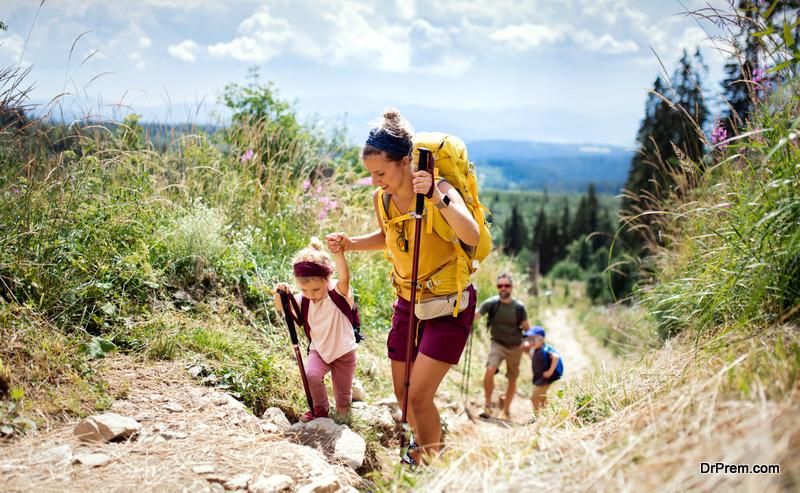Hiking is a fantastic way to connect with nature, stay active, and explore beautiful landscapes that you just can’t see in your own backyard that you built with the help of an outdoor patio contractor. Whether you’re embarking on your first hike or looking to improve your hiking skills, being prepared and knowledgeable about the outdoors is essential. Here are 3 essential tips for beginners to make the most of their hiking adventures:
1. Start with Short and Easy Trails
As a beginner hiker, it’s important to ease into the activity by starting with short trails matching your fitness level and experience. Look for “beginner-friendly” or “easy” trails with relatively flat terrain and minimal elevation gain. State or local parks often offer beginner-friendly hiking trails with well-marked paths and amenities like restrooms and picnic areas. Research trail options in your area or ask for recommendations from experienced hikers or outdoor enthusiasts. Starting with shorter hikes allows you to gradually build your stamina and confidence while enjoying nature’s beauty without feeling overwhelmed.
2. Pack the Essentials
Before heading out on a hike, it’s crucial to pack the necessary gear and supplies to ensure a safe and enjoyable experience. While the specific items may vary depending on the length and difficulty of the hike, some essential items to include in your hiking pack are:
- Water: Stay hydrated by bringing an adequate amount of water for the duration of the hike. Consider using a hydration reservoir or water bottle with a built-in filter for convenience.
- Navigation tools: Carry a map, compass, or GPS device to help you navigate the trail and avoid getting lost.
- First aid kit: Be prepared for minor injuries or emergencies by packing a basic first aid kit with bandages, antiseptic wipes, pain relievers, and any personal medications.
- Weather-appropriate clothing: Dress in layers and wear moisture-wicking clothing suitable for the weather conditions. Bring a lightweight rain jacket or windbreaker in case of inclement weather.
- Snacks: Pack energy-boosting snacks like trail mix, granola bars, or fresh fruit to fuel your hike and keep hunger at bay.
By packing the essentials, you’ll be better equipped to handle unexpected situations and enjoy a safe and comfortable hiking experience.
3. Leave No Trace
As you explore the great outdoors, it’s important to minimize your impact on the environment and practice Leave No Trace principles. Leave No Trace is a set of outdoor ethics that promotes responsible outdoor recreation and conservation. Some key principles to follow include:
- Pack out what you pack in: Carry out all trash and litter, including food wrappers, tissues, and other waste.
- Stay on designated trails: Avoid trampling vegetation or creating new trails to preserve fragile ecosystems and wildlife habitats.
- Respect wildlife: Keep a safe distance from wildlife and refrain from feeding or approaching animals.
- Be considerate of other hikers: Yield to other hikers on the trail, and keep noise levels to a minimum to preserve the tranquility of nature.
By practicing Leave No Trace, you can help protect natural areas and ensure that future generations can enjoy the beauty of the outdoors.
Hiking is a rewarding and accessible outdoor activity that offers numerous physical, mental, and emotional benefits. By following these essential tips for beginners—starting with short and easy trails, packing the essentials, and practicing Leave No Trace principles—you can enjoy safe and fulfilling hiking adventures while exploring the wonders of the natural world. So lace up your hiking boots, hit the trails, and embark on a journey of discovery and exploration in the great outdoors. Happy hiking!
Article Submitted By Community Writer


